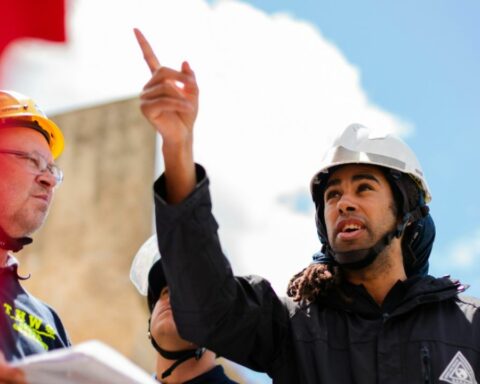A key meeting to advance in the transfer of powers and the improvement of regional financing when the Senate Chamber analyzes the 2022 Budget in the second process, held a group of 13 regional governors and governors with senators, the Minister of Finance Rodrigo Cerda and undersecretaries.
“We have already had conversations with the Treasury and the Budget Office, but we want to talk with the senators about the possibility of expanding the autonomy of the regional governments and having the possibility that budgetary decisions, the ARI for example, be managed from the regions”, argued Ricardo Díaz, governor of Antofagasta, who also thanked the support provided by the regionalist bench of senators.
For his part, Jorge Flies, governor of the Magallanes Region, stressed that “we want to advance in autonomy and income security. There is consensus that income is guaranteed by law, especially by the FNDR, but should not be debatable year after year, but rather be stable. But also, we need flexibility in the spending of the regional governments and that we do not have that they are requesting the approval of everything from the Budget Directorate ”.
For her part, the president of the Senate, Ximena Rincón, valued the work carried out by the regional authorities and highlighted that “they were invited by the regionalist bench to a meeting in parallel to the budget discussion and we hope that all the conversations and requests that we carry working for a long time are reflected in the discussion of the Budget Law 2022. The Ministry of the Interior is in the third block, one of the complexes of the project, because we had not reached an agreement with the Government ”.
In turn, the Minister of Finance, Rodrigo Cerda, was open to advancing in each of the matters and others that will be put on the table within the framework of the effective decentralization process. “We are available to relax certain things that we have raised with the conversations with the governors and we hope that this will help you have a very good year since the budget support,” he said.
In addition, at the meeting it was ensured that the Government is making an effort to establish a 40% cash balance for regional governments, a situation that will not be repeated in any other public distribution.
For the Governor of Antofagasta, “to advance in greater flexibility, to have instances of greater autonomy in spending, without so much supervision or tutelage, would allow us as regional governments, to carry out the programs with which we committed ourselves and we also advance, in the process decentralization ”.
Greater skills and resources
After the meeting, Senator RN Francisco Chahuán agreed that “the conditions must be created so that regional governments have greater powers and resources to carry out their projects. That is why we want to give them greater budgetary flexibility, increase critical allocations and have a commitment to deliver a more robust income law ”.
In turn, Senator PS Juan Pablo Letelier added that “one of the topics of the discussion is to guarantee the use of the cash balance for next year; as well as providing them with the necessary human resources and budgetary flexibility because they cannot wait for the authorization of spending from Santiago … these are the issues that we have presented as an indication “.
For his part, the independent senator Alejandro Guillier, asserted that from the regionalist bench they hope that the Executive, through the Minister of Finance, will agree to a greater flexibility of the resources allocated in the budget to the regional governments. “We have a weakness in the budget management of regions, particularly today, in a scenario in which many of them have not executed more than 10% of the annual budget, when the governors have debuted in their positions.”
From the governors’ side, requests were added for changes to some regulations, the creation of new glosses and even the increase in human resources to be able to comply with the demands of the inhabitants of the regions.
“Today citizens require us to focus on their needs, but we find that all the programs approved by the different public services, when they pass through the Comptroller’s Office, are observers, which causes the execution of projects to be delayed a lot” , indicated the governor of Maule, Cristina Bravo.
The governor of La Araucanía, Luciano Rivas, added the issue of security and speed in the execution of projects, stating that “There is the issue of security and citizen participation that we believe are relevant in La Araucanía, but mainly the flexibility to be more efficient in management. Our area continues to be one of the poorest in the country and it is necessary to manage rural drinking water projects faster, for example “.








